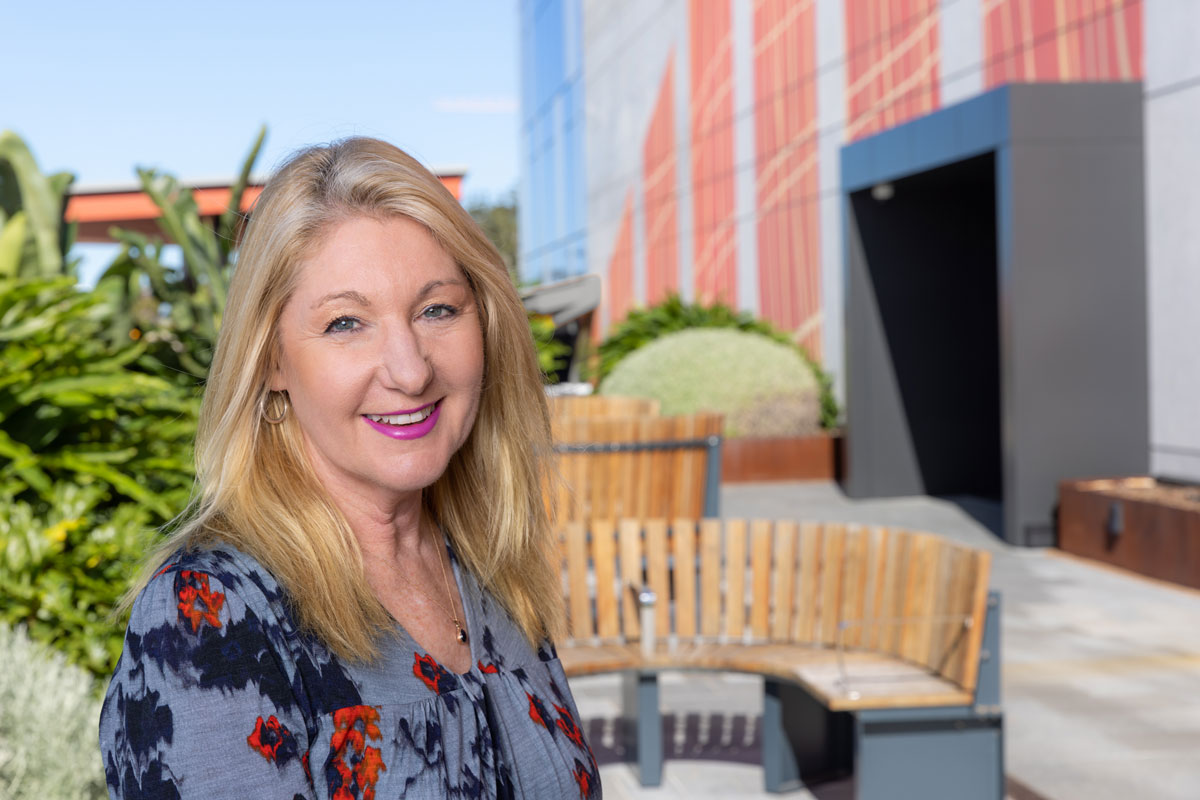Researcher Highlights
Pushing towards midwifery continuity of care
Associate Professor Allison Cummins
Renowned researcher and policy influencer Associate Professor Allison Cummins is on a mission to increase the visibility of midwifery, create better, safer experiences for mothers and midwives, and facilitate industry shift.

The crux of Allison's work to date has been focused on moving away from the traditional maternity care model, where women are seen by multiple midwives, obstetricians and GPs without continuity.
Instead, Allison’s research proposes the scale up of midwifery continuity of care - defined as care provided by a known midwife or small group of midwives to a woman through pregnancy, birth and the early parenting period.
Her passion and interest in this innovative model were born early in her career when she was working as a midwife in this model of care.
"As a midwifery educator, I was supporting the transition of new graduate midwives into midwifery continuity of care," says Allison. “I believed research was needed to demonstrate the safety and benefits."
Her reputation for research in this area has since led to international opportunities attracting funding and invited keynote addresses.
She also has over 50 publications, including peer-reviewed high-ranking journal articles, book chapters and co-edited two books, and she continues to make an outstanding contribution to student learning.
Creating the case for continuity of care
"Midwifery continuity of care is a model that has proven to have many benefits for mothers and babies," says Allison.
This includes a reduction in preterm birth, the leading cause of infant death and disability, a decrease in unnecessary obstetric interventions and an increase in spontaneous birth. Women are also more likely to breastfeed for longer and report being more satisfied with the experience.
However, while the positives are evident, in Australia currently, only around 15 per cent of the 300,000 women who give birth yearly have access to it. Allison's work is contributing to enabling more women to access midwifery continuity of care with all the known benefits.
The continuity model and mental health
Initially, Allison's research was focused on transitioning graduate midwives to staff this new continuity of care model.
Recently, her focus has shifted to mental health, ensuring that women with perinatal mental health conditions, such as anxiety and depression, can access a known midwife throughout their pregnancy, birth and the early parenting period.
"Approximately one in five to one in 10 women will experience a mental health condition during pregnancy, and this has increased following COVID-19," says Allison.
"Having a known midwife decreases the need for these women to have to tell their story to several different care providers during pregnancy."
In addition, she recently led a study that demonstrated a reduction in preterm birth for a group of women who have a higher risk of preterm birth compared to women without mental health conditions.
Unfortunately, many women who have a pregnancy complicated by a mental health condition can't gain access to this model of care.
This is despite the Australian Clinical Practice Guidelines for perinatal mental health recommending midwifery continuity of care for women with anxiety and depression or other mental health conditions.
Research demands service redesign
While her research shouts for change, Allison admits there are many challenges.
"The implementation and scale up includes a whole service redesign as midwives no longer work on shifts but alongside the needs of the woman.
"The midwife needs to schedule antenatal care at a convenient time and place, they're then on call for the birth, and usually the postnatal care occurs in the woman's home."
This is very different for hospital management and leaders in maternity services who are used to 'staffing' a maternity service by rostering midwives to work on a ward every shift. The autonomous nature of the midwives' work in continuity of care presents a management challenge. But shift is happening.
"Over the years, through the dissemination of research findings and other education packages, many maternity managers are supportive of implementing the model of care," says Allison.
"My research has found that new graduate midwives are well prepared and supported by the small group of midwives to work in continuity of care, and a number of visionary maternity managers have employed them."
Initial employment includes a longer orientation period and a reduced caseload of women to care for initially until the new graduate has increased confidence through mentoring and support.
From local to international shift
Locally, Allison's research of new graduate midwives transitioning into midwifery continuity of care models is being implemented by the Central Coast Local Health District with Gosford Midwifery Group Practice employing and supporting a new graduate every year into the model.
The Belmont Midwifery Group Practice and Hunter Midwifery Group Practice in the Hunter New England Local Health District have also embraced the transition of new graduate midwives to this model and plan to up numbers in the next few years.
Nationally, Westmead, Canterbury, Mackay, Townsville and Mater Mothers Hospital in Queensland; Sunshine Coast Hospital in Victoria, Canberra hospital in the ACT and Alice Springs in the Northern Territory are just some of the sites now bringing graduates in under this model.
Allison's work has also been embraced in the UK and led to research alliances with the Yale-led Quality Maternal Newborn Care Research Alliance.
Most recently, she's collaborating with the NSW Ministry of Health, to evaluate a new maternity model of care, where women have continuity through the antenatal and postnatal periods.
"The opportunity to make this model available to more women is the aspect of the research that excites and motivates me to keep going," says Allison. "I feel proud when I see graduates and managers experiencing the benefits."
The University of Newcastle acknowledges the traditional custodians of the lands within our footprint areas: Awabakal, Darkinjung, Biripai, Worimi, Wonnarua, and Eora Nations. We also pay respect to the wisdom of our Elders past and present.
